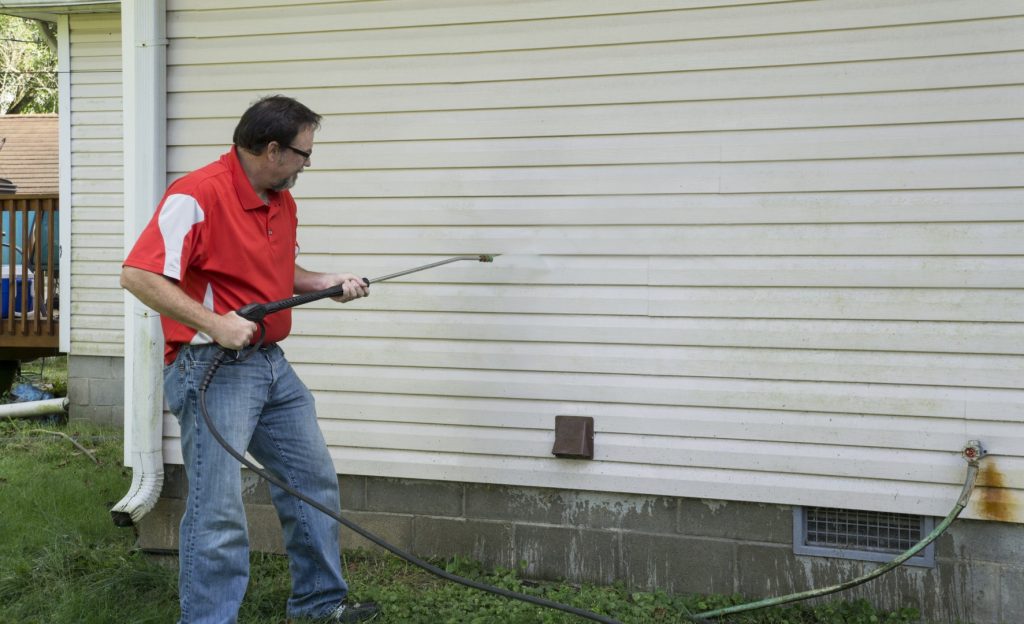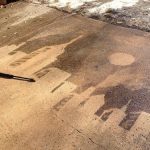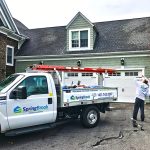Power washing is one of the most effective ways to clean outdoor surfaces, but that doesn’t mean it’s safe for everything. While many people assume they can just lower the pressure and be safe, the truth is that certain surfaces should never be power washed at all—not even with the most delicate nozzle or lowest setting.
Knowing what not to power wash can save you from expensive repairs, irreversible damage, or even voided warranties. So, let’s walk through the key materials and areas that should be cleaned without the power washer. 🧼❌
1. Asphalt Roof Shingles 🏠
Asphalt shingles may seem sturdy, but they’re extremely vulnerable to high-pressure water. Power washing can:
- Strip away the granules that protect against UV rays
- Force water underneath the shingles
- Dislodge nails or adhesive
- Create leaks and lead to mold inside your attic
🧠 Alternative: Use a soft-wash system with a roof-safe cleaning solution and a low-pressure rinse—ideally done by a professional.
2. Old Wood or Weathered Decks 🪵
Wood surfaces can usually be power washed carefully, but older, weathered wood is another story. Even low pressure can:
- Splinter the wood
- Raise the grain, making the surface rough
- Create uneven color spots
- Force water deep into the wood, leading to warping
🧠 Alternative: Scrub with a wood cleaner and soft brush. Follow up with a wood brightener and reseal the surface to restore life without damage.
3. Painted Surfaces You Don’t Want to Repaint 🎨
Unless you’re specifically preparing to repaint, power washing painted surfaces is risky. Water pressure can chip, flake, or completely strip away older or thin coats of paint—especially on:
- Wooden siding
- Metal fences
- Outdoor furniture
- Painted concrete or brick
Even with a gentle nozzle, uneven pressure can leave patchy areas that require repainting. 🎯
🧠 Alternative: Use a hose, sponge, or low-pressure sprayer with mild detergent.
4. Electrical Fixtures and Outlets ⚡
You should never power wash:
- Outdoor outlets
- Light fixtures
- Electrical boxes
- EV charging stations
- Security cameras or doorbells
Even water-resistant units can be breached by high-pressure water. Once moisture enters wiring or circuits, it can lead to short circuits, corrosion, or complete failure.
🧠 Alternative: Cover with plastic if washing nearby. Wipe fixtures down manually with a damp cloth and mild cleaner.
5. Windows and Glass Panels 🪟
Glass may seem like a power-wash-safe surface, but high PSI can cause:
- Cracks or breakage
- Shattered seals on double-pane windows
- Water intrusion into window frames
- Leaks in caulking or insulation
Even low-pressure streams can stress weak or older panes.
🧠 Alternative: Use a squeegee, soft brush, or hose with a glass-safe cleaner for streak-free shine.
6. Stucco and Drywall 🧱
Stucco is fragile and porous. Power washing can:
- Crack the outer layer
- Chip away texture
- Saturate the material and lead to mold inside walls
Drywall (yes, some garages and basements have exposed drywall!) should never be washed under pressure—it will crumble and disintegrate.
🧠 Alternative: Use a soft wash setup or hand-wash these materials with care.
7. Vehicles with Peeling Paint or Rust 🚗
Power washing cars, RVs, and boats is possible—but only if done right. If your vehicle has:
- Peeling clear coat
- Rust spots
- Loose trim
- Cracks in the paint
…a power washer can make it worse. Water under the paint or into rust areas can accelerate decay.
🧠 Alternative: Use a foam cannon or pressure washer with a low PSI and fan tip designed for automotive use. Keep your distance!
8. Delicate Outdoor Decor and Furniture 🪑
Items like:
- Resin statues
- Wicker furniture
- Decorative pots
- Solar lights
- Painted signs
…are all easily damaged by pressure. Paint can flake, resin can crack, and wicker can unravel.
🧠 Alternative: Wipe down by hand or rinse gently with a garden hose.
✅ Quick No-Wash Reference List
Avoid power washing these surfaces:
- 🚫 Asphalt shingles
- 🚫 Painted wood or siding (if you’re not repainting)
- 🚫 Windows and glass
- 🚫 Old or weathered wood
- 🚫 Stucco or drywall
- 🚫 Electrical fixtures
- 🚫 Fragile decor or furniture
- 🚫 Rusty or peeling vehicles
📝 Final Thoughts
Power washing is a powerful tool—but knowing where not to use it is just as important as knowing how to use it well. When in doubt, choose a gentler approach or call a professional with the right soft-washing gear.
Use your power washer wisely, and you’ll protect your home, your wallet, and your peace of mind. 💧🚫🏡


